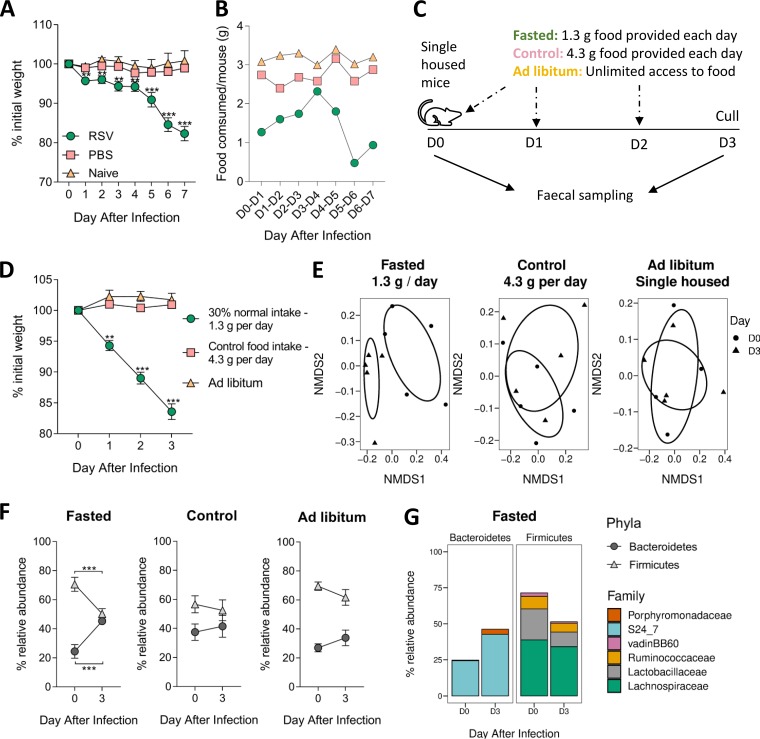FIG 1.
Reduced food consumption alters the composition of the gut microbiota increases the relative abundance of Bacteroidetes and decreases Firmicutes. Mice were intranasally infected with 2 × 106 PFU/ml RSV-A2, intranasally dosed with sterile PBS, or left naive. The weights of individual mice (A) and food consumption of the entire cage (B) were measured every day. Fasted mice were provided with 1.3 g food per day per mouse, which was 30% of control food intake (4.3 g per mouse per day). (C) Fecal samples were taken from fasted and control mice and from mice with unlimited access to food (ad libitum) at day 0 and day 3. (D) Weight loss in fasted mice. (E) Gut microbiota diversity composition compared to that prefasting (P = 0.01). (F) Relative abundances of Bacteroidetes and Firmicutes after infection. (G) Family level analysis of gut microbiota response after infection. n = 5 mice per group. These data are representative of 2 studies. Weight loss and changes in phyla/family abundance tested using repeated measures two-way ANOVA, with Dunnett’s and Sidak’s multiple-comparison tests, respectively. Change in beta diversity was visualized using NMDS on Brays-Curtis dissimilarity matrix, using ADONIS to test for significant difference. **, P ≤ 0.01; ***, P ≤ 0.001.

